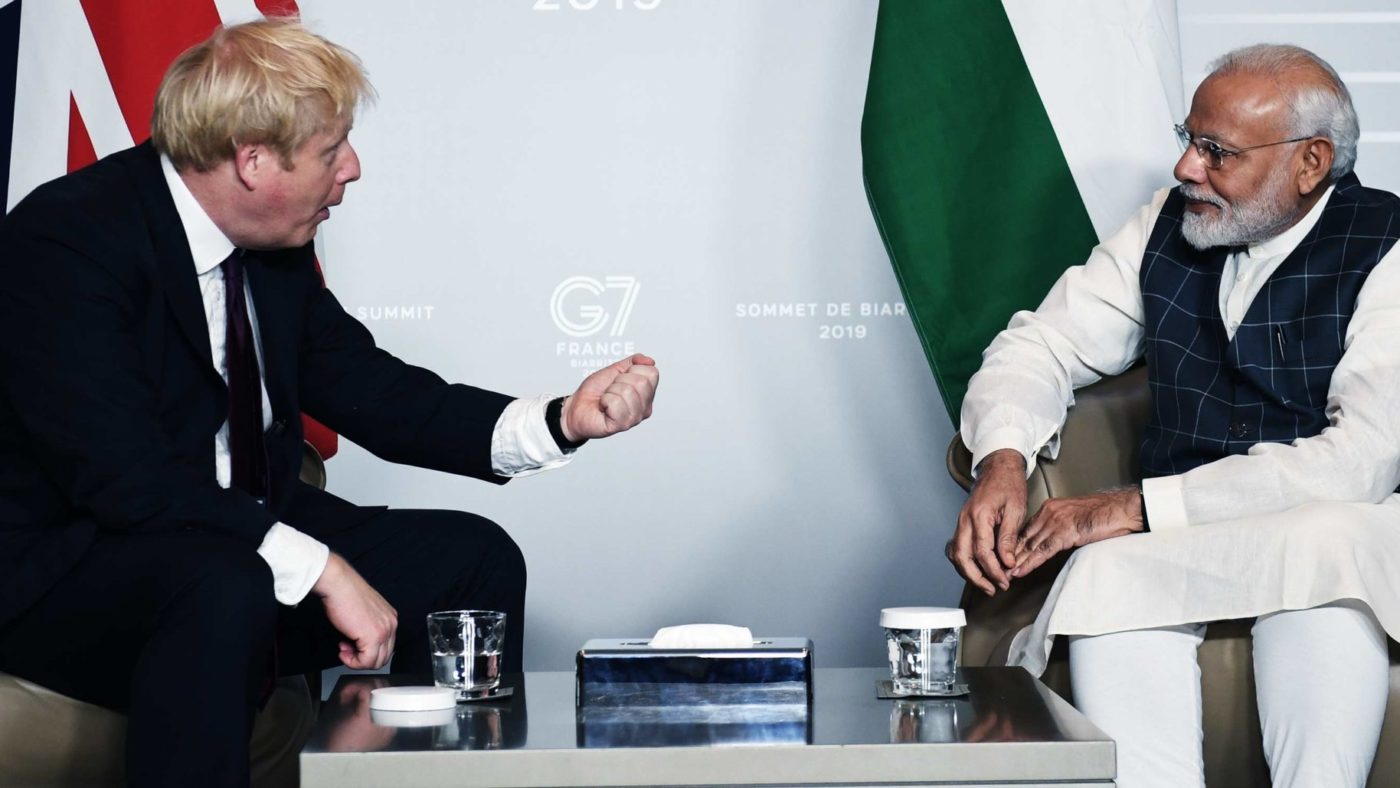The announcement of a new Enhanced Trade Partnership between the UK and India is very welcome. It not only promises more trade between the two countries in the near term, but also marks a step on the road to a more comprehensive free trade agreement.
Boris Johnson had intended to sign off the partnership on a personal trip to India – a visit that has understandably had to be postponed due to the horrifying Covid situation in the country. Last month, just days before that visit had been planned, I authored a paper, ‘Eastern Promise‘, setting out how the two countries could come to a comprehensive free trade agreement that would satisfy both sides’ offensive demands.
I noted that the UK had limited defensive baggage when it comes to a trade deal with India, particularly now that it is prepared to be more open on Mode 4 services (movement of Indian professionals to move to the UK and run their high tech subsidiaries for example), and on agricultural SPS issues. The latter is one of the advantages of Brexit, given that the UK can now diverge from European SPS rules that have bedevilled Indian agricultural exports to the EU, including bans rice and tropical fruit such as mangoes. The fact that the UK has no significant defensive interests in areas of Indian agriculture means it can afford to be more welcoming in ways that the EU will find difficult.
As I also noted, the reasons for a deal with India are not just commercial – although there are important UK interests at stake, notably in legal and financial services, reduction of the scotch whisky tariff and ensuring that India properly protects property rights and honours its existing Bilateral Investment Treaty arbitrations.
There is plenty of work to do here, and I highlighted in the paper some of the outstanding cases where India is on the wrong side of those disputes and is sending a very negative signal to the market. Of the cases I highlighted, the most extreme was the Devas vs Antrix case, which involved a private investor and its deal with a subsidiary of the Indian Space Research Agency regarding the allocation of spectrum. Not only did the Indian government expropriate the property of Devas, it then blatantly ignored the results of Bilateral Investment Treaty arbitrations.
The Indian government also has a very poor track record when it comes to other property rights issues, in particular the protection of intellectual property. Both of these are vitally important areas for the UK, which is one of the world’s largest foreign investors and biggest producers of intellectual property. Britain’s world-leading pharmaceutical sector and high-tech companies also rely heavily on intellectual property protection.
A UK-India trade deal would not just be about commerce though – there’s are also important geopolitical ramifications. A comprehensive FTA would be a step towards aligning India with the community of nations who broadly believe that economic activity is best generated when trade is liberal, competition on the merits is the organising economic principle and property rights are protected.
India is now in a different place from where it has been historically when it comes to trade. As then foreign minister Vijay Gokhale noted in 2019, India is no longer a ‘non-aligned’ nation (a term more suited to the Cold War era), but does align itself on individual issues. The reality is that India cannot “go it alone” in the face of serious threats from China in terms of security (Indian troops have been killed on the border with China), geopolitics (China has ringed the Indian ocean with its naval bases and other facilities including, critically, now controlling land directly in Sri Lanka), and trade, where Chinese market distortions artificially reduce the costs of its State-owned Enterprises and other hybrid organisations to flood global markets and damage domestic Indian producers – directly undermining Modi’s much vaunted Make In India strategy.
So India faces a crossroads, and the UK may just be the one country that can draw it into the orbit of nations that support a classical liberal approach to economics and interact with each other based on regulatory recognition, rather than harmonisation or the export of regulation.
It is very encouraging that Boris Johnson has enthusiastically grabbed this opportunity. It illustrates exactly how an agile, but significant global trader can play the new global game, able to move in ways that the largest entities (such as the US and EU) cannot. In developing closer ties to India, Britain is doing well for itself, but also doing its bit for global economic growth, geopolitical stability and security.
Click here to subscribe to our daily briefing – the best pieces from CapX and across the web.
CapX depends on the generosity of its readers. If you value what we do, please consider making a donation.


